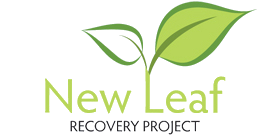The Trauma Catch-22: PTSD & Alcohol Abuse

At New Leaf, we understand that there are a number of complex struggles that individuals can face, including PTSD. Sadly, PTSD sufferers are also often linked with alcohol abuse, using this as a method of coping with their PTSD symptoms. Both conditions can have an impact on the individual’s life and those around them. It is an addiction that can take people down dark paths of addiction with lasting impacts on physical and mental health too.

At New Leaf, we aim to help every client with their struggles, understanding where these stem from and how we can best help overcome these and find a healthier, happier life. If you, or someone that you know is struggling with alcohol, get in touch with New Leaf today. Our compassionate team are here to help get your recovery journey started.
Don’t struggle, seek support todayWhat is PTSD?
PTSD, or post-traumatic stress disorder, is a condition that develops after experiencing or witnessing a traumatic event. This can often effect veterans. The signs and symptoms of this condition includes flashbacks, avoidance, hypervigilance, intrusive thoughts, and difficulties in managing emotions. Typical behaviours include self-destructive behaviours or social isolation as well as difficulties in maintaining healthy relationships.
What Does Alcohol Misuse Look Like?
Alcohol is ever present today. It is often used in social settings, with people drinking in around friends or binge drinking on occasion. If alcohol starts to become part of your everyday routine and consumption becomes excessive, this may indicate alcohol abuse. Despite the negative impacts that alcohol can have on physical and mental health, people with other struggles, such as PTSD, can sometimes find a sense of relief in alcohol use.
The Catch-22
Sadly, PTSD and alcohol abuse are often linked with almost three quarters of PTSD suffers struggling with alcohol abuse also. Being unable to cope with the symptoms of PTSD can lead to higher alcohol consumption. The temporary sense of relief that this offers helps sufferers numb emotions and pain and overcome intrusive thoughts. Sadly, this doesn’t last for long.
The misuse of alcohol can lead to self-destructive behaviours and help avoid the trauma that people struggle with.
If you know someone who struggles with PTSD and alcohol usage, or maybe struggle yourself, why not get in touch with New Lead Recovery today. We can help you turn over a new leaf and start your fully supported recovery journey.
Struggling with PTSD or Alcohol? Call usAlcohol Misuse Worsen PTSD
Alcohol has a number of negative side effects that, when linked with those of PTSD can worsen a person’s mood and circumstances. Some of the worsened effects of PTSD due to alcohol consumption can include:
- Disturbed sleep: Those with PTSD can already find it a challenge to get restful sleep; when alcohol is also added to this, it can significantly disrupt healthy sleeping patterns, having an impact on emotional regulation too.
- Increased depression and anxiety: Two of the more common symptoms of PTSD can be anxiety and depression. These are also common with alcohol abuse, so when both are combined, this can lead to an increase in already existing negative thoughts and feelings.
- Impaired memory: When alcohol has been consumed, it can cause further memory impairment. This then makes it harder to process traumatic events from the past.
- Risky behaviours: Under the influence of alcohol, individuals can be more likely to participate in risky behaviours. This could lead to new traumatic experiences, adding to an individual’s PTSD in the long run.
If you are noticing a change in someone’s behaviour that could be linked to PTSD or alcohol use, get in touch with New Leaf today. Whether for yourself or a loved one, we are here to offer support, advice, and guidance in recovery.
Seek guidance & support todayThe Common Signs and Symptoms of Alcohol Addiction
With alcohol being a part of everyday life for some, it can be difficult to identify what the signs of alcohol abuse and addiction are. Signs to be aware of include:
- Drinking for longer periods of time.
- Consuming more than intended.
- Needing to drink more for the same result – this is an alcohol tolerance.
- Repeated attempts to cut down or control consumption.
- Strong cravings and urges to drink.
- Continued drinking despite the negative effects.
- Lots of time spent using, obtaining, or recovering from alcohol.
- Neglecting responsibilities.
- Drinking in dangerous situations – this could be drink driving for example.
- Relationship problems caused by drinking.
- Continued drinking despite the negative physical and mental health impacts.
If you have noticed yourself or a loved one drinking more alcohol or struggling with the impact of a traumatic event, get in touch with New Leaf today. Our team can help you understand the root cause of your pain and overcome it with healthy habits and coping mechanisms.
Break the Cycle; Overcome the Trauma.
Seek Support with New Leaf Recovery
The month of May 2024 marks PTSD Awareness Month. If you or someone you love has been struggling with PTSD and/or alcohol abuse, it is important to know that you are not alone! New Leaf Recovery offers a holistic approach to rehabilitation and therapies, helping every client to understand their trauma and find healthy coping methods that can help them find a brighter future.
Our therapies have been designed to help clients develop healthy coping mechanisms for alcohol abuse, learn how to process past traumas in a safe and supportive environment, address underlying mental health issues that have contributed to alcohol abuse and develop a relapse prevention strategy to sustain sobriety into the future.
If you would like to seek support or advice, or start your recovery journey today, don’t hesitate to get in touch with New Leaf. Give us a call and speak to our team or complete the form below in complete confidence.
Call Us Today: 0121 251 4431Receive a Free Call Back
"*" indicates required fields
Our Complete Recovery Journey - from your initial enquiry, all the way through treatment and beyond into ongoing support, New Leaf Recovery are there to guide and support you.
New Leaf offers a complete journey of treatment - from initial detoxification and rehabilitation to ongoing support, including aftercare, family support, and beyond into long-term recovery.
Getting the right accommodation enables us to provide the right backdrop for our recovery methods. Any form of rehabilitation needs to happen in a safe, comfortable, secure and friendly environment.
Receive a Free Call Back
"*" indicates required fields










